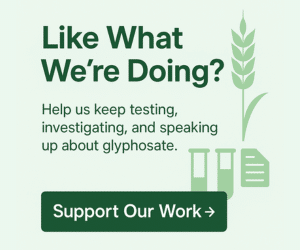What does Bayer’s contemplation of ceasing glyphosate production signify for global agriculture?
It’s not just a business decision; it’s a potential turning point that could reshape farming as we know it. Glyphosate, originally developed by Monsanto in the 1970s, became the go-to herbicide for decades before Bayer acquired it in 2018. Now, with Bayer hinting at a possible exit, are we on the brink of a paradigm shift in agriculture?
Bayer’s Predicament: Legal Pressures and Financial Strains
Why would Bayer, a global agrochemical leader, even consider stepping away from such a profitable product? Is it really about safety? Or is the decision driven by something else entirely? Let’s be honest—Bayer’s predicament isn’t rooted in an ethical epiphany; it’s about lawsuits. Since acquiring Monsanto, Bayer has inherited a storm of litigation—around 67,000 unresolved cases, to be precise. These lawsuits claim that glyphosate causes cancer, and Bayer has already paid around $11 billion to settle 100,000 cases.
Think about it: Bayer didn’t develop glyphosate—Monsanto did. But now Bayer is left holding the bag, and that bag just keeps getting heavier. Is the continued production of glyphosate financially sustainable for Bayer? Or is the company just trying to cut its losses?
Agricultural Dependency: The Glyphosate Reliance
Here’s the uncomfortable truth: Over 90% of U.S. corn, soybean, and cotton crops are genetically engineered to tolerate glyphosate. It’s not just a weed killer; it’s a crutch. But what happens if Bayer pulls the plug? Do farmers really have a backup plan, or are they staring down a potential agricultural crisis?
And here’s a kicker: if glyphosate imports replace Bayer’s production, are we just swapping one problem for another? Quality control could become a nightmare. Are we prepared to see counterfeit products or glyphosate mixed with who-knows-what?
Exploring Alternatives: The Search for Substitutes
If glyphosate goes, what’s next? The truth is, there’s no clear replacement waiting in the wings. Many so-called alternatives are either less effective or come with their own baggage. So why aren’t we seriously looking at reducing our dependence on herbicides altogether? Are we stuck in a loop of thinking there’s a chemical fix for everything?
Regulatory and Legal Dynamics: Navigating the Complex Landscape
Here’s where the story gets murky. The U.S. EPA still holds that glyphosate is unlikely to be carcinogenic when used as directed. But how does that square with tens of thousands of lawsuits claiming the opposite? And why are some states enacting laws to shield companies from legal fallout? Are we prioritizing policy over public health, or just buying time while evidence mounts?
Environmental and Health Considerations: Weighing the Evidence
It’s not just about whether glyphosate causes cancer—it’s about the whole picture. Some studies hint at carcinogenic risks; others call it safe. But what about long-term environmental impacts, like soil degradation or biodiversity loss? Are we just too fixated on short-term gains to see the bigger picture?
The Bigger Picture: Bayer’s Strategic Withdrawal
If Bayer exits the glyphosate game, what are we really left with? Cheap imports from countries like China? Do we even know what’s in those products? Could they be more harmful than the original Roundup? If Bayer itself is reconsidering glyphosate, isn’t it time policymakers do the same? Or are we just shifting responsibility rather than solving the problem?
Conclusion: Rethinking Agricultural Paradigms
Maybe Bayer’s potential exit is the wake-up call we need. Are we ready to rethink our agricultural practices? Shouldn’t we be questioning why we ever became so dependent on a single chemical in the first place? This might just be the moment to explore diversified, resilient, and sustainable farming methods instead of clinging to outdated practices.
Sometimes the end of a chapter is just the beginning of a better story. Are we ready to turn the page on glyphosate and rethink our relationship with the land?
Stay informed, sign up to receive our newsletter!
Image Source & Attribution
We’re grateful to the talented photographers and designers whose work enhances our content. The feature image on this page is by fotokostic. You can find more of their work here: https://www.123rf.com/profile_fotokostic.




